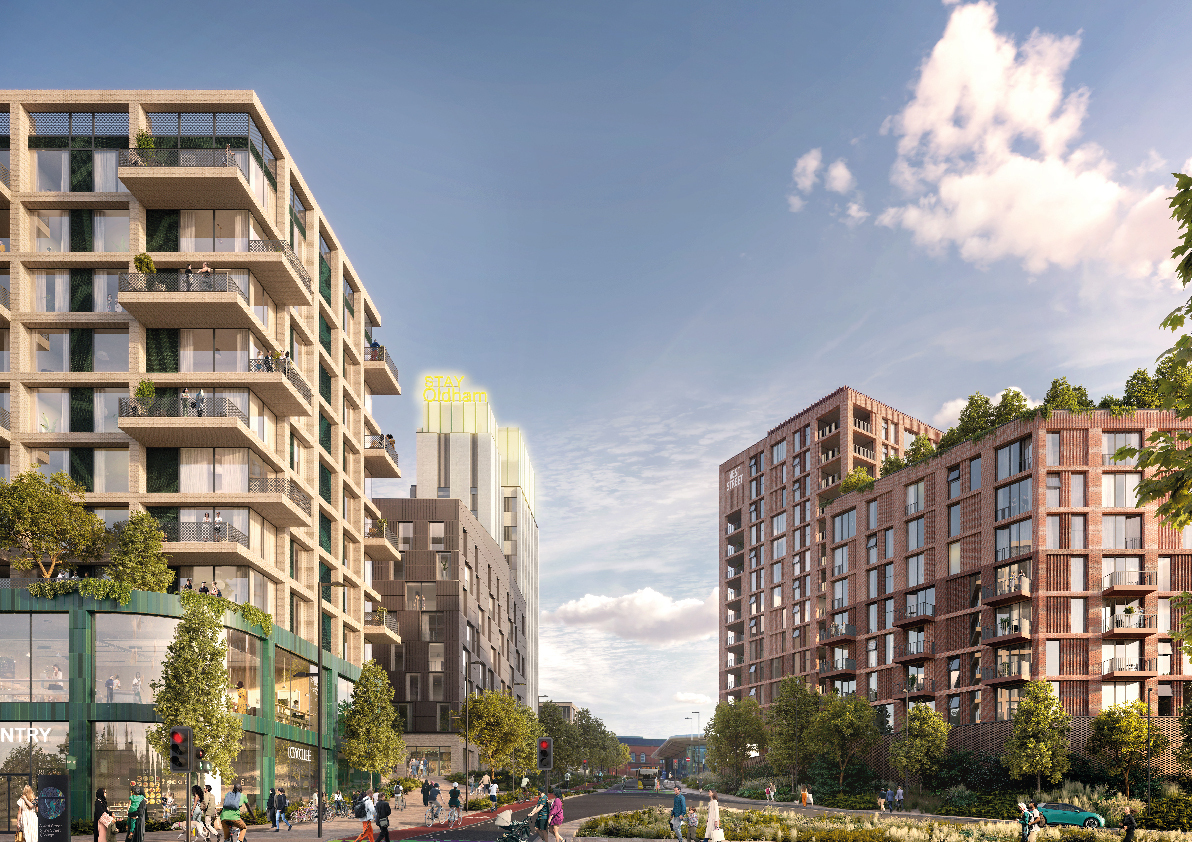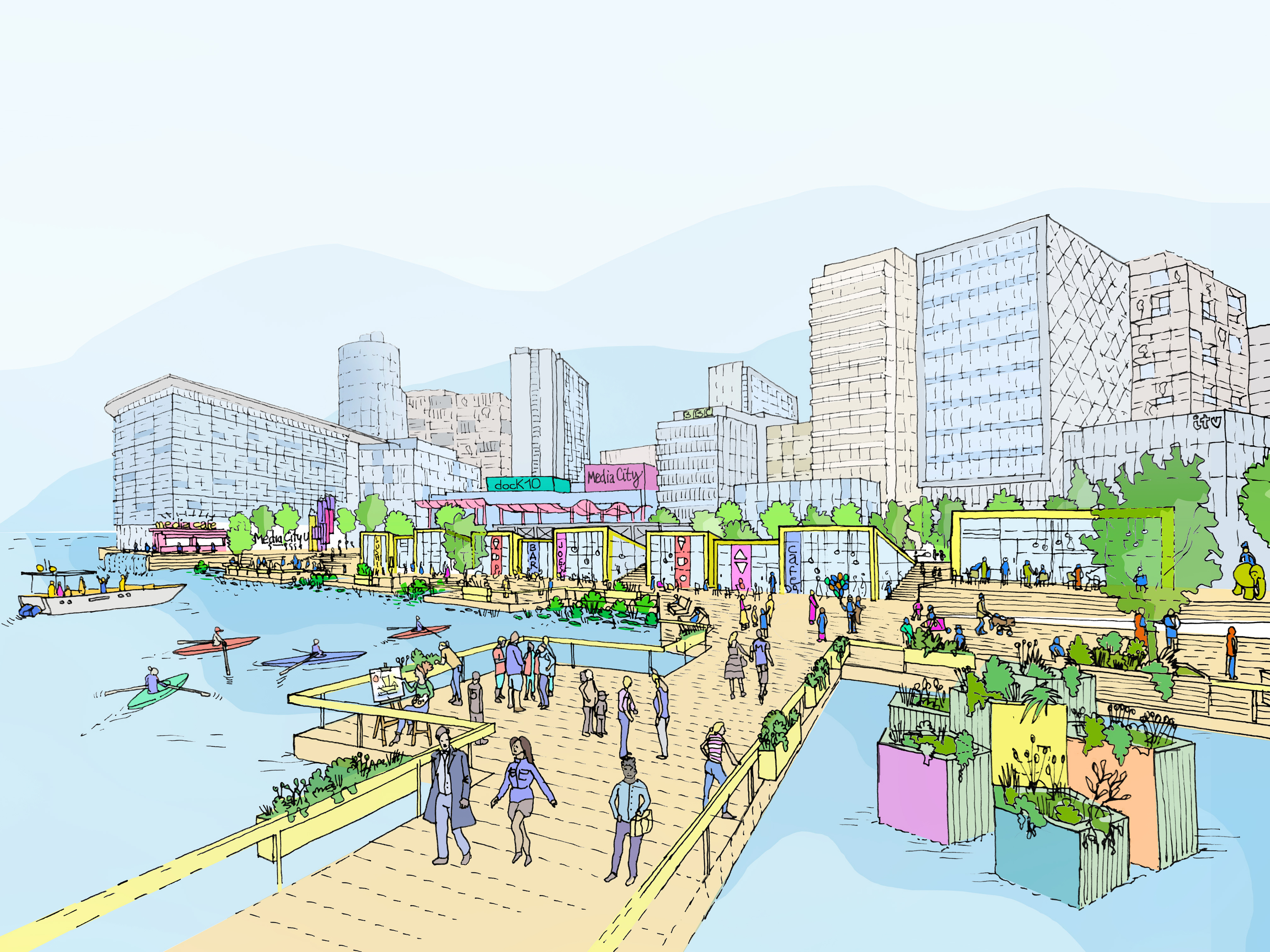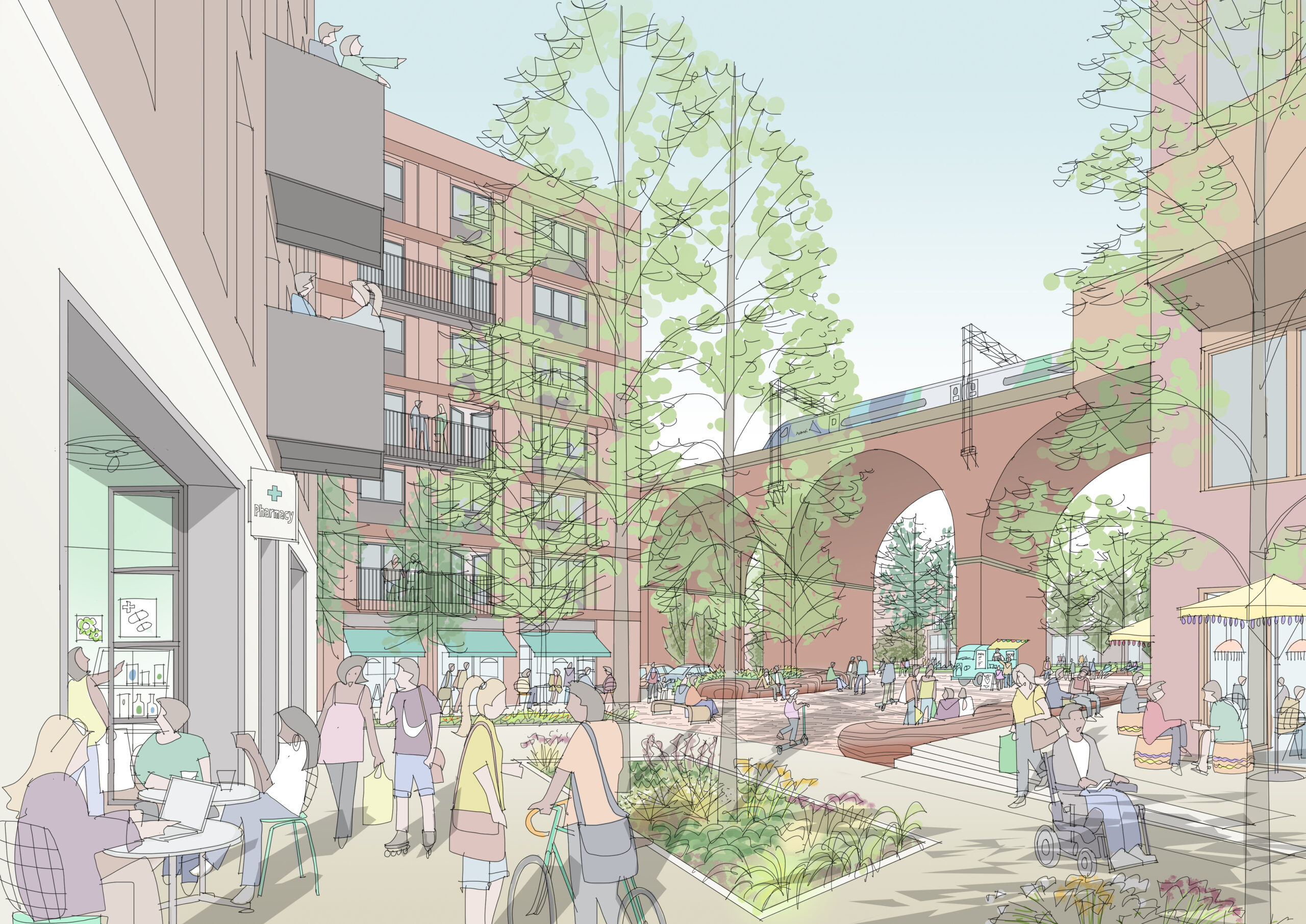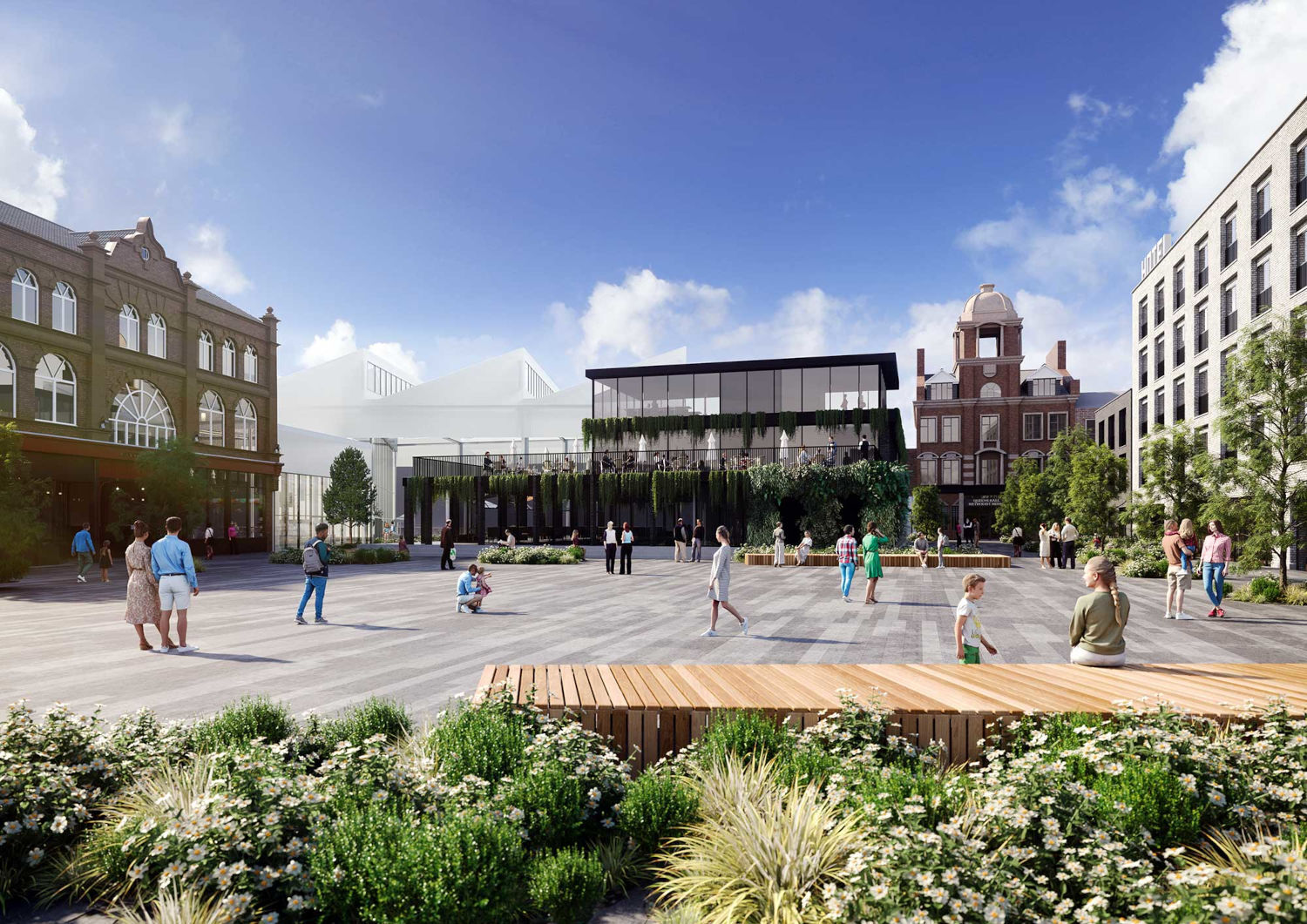LREF 2024: Exploring Greater Manchester’s Local Authorities
In the run-up to the event, we wanted to share more insight into these boroughs and why their long-term vision, pipeline of opportunities and Greater Manchester spirit provide an exciting proposition for business and investors.
Manchester is preparing to attend LREF 2024, an unrivalled opportunity to showcase the best investment opportunities across our city-region with investors, property professionals and potential collaborators. Manchester is often considered the UK’s second city, with a rapidly growing population, affordably enviable lifestyle offering and a business base supported by an innovation eco-system in key sector strengths. With an economy that is outgrowing the UK, Manchester presents a dynamic, interesting and strategic investment opportunity for many. However, what many people don’t think of when they think of Manchester is what lies beyond the newly constructed skyscrapers in the city centre.
This year at LREF, we’re thrilled to have representatives from some of Greater Manchester’s local authorities, each with innovative and ambitious regeneration plans to secure economic growth and ‘reimagine’ the future of their borough.
Greater Manchester has a strong, unified vision to drive future growth both inside and outside of the city centre with strategies in place. The city-region has identified growth locations that represent opportunities to bring forward development at scale to drive transformational change. Each growth location has opportunities for housing, the public realm and employment sites poised for investment. The growth locations aim to bring much-needed jobs and homes to deprived communities, create a more balanced economy, and drive R&D-led innovation while improving well-being and community spaces.
These growth locations span all boroughs, each with its sector strengths, unique assets and character. In the run-up to the event, we wanted to share more insight into these boroughs and why their long-term vision, pipeline of opportunities and Greater Manchester spirit provide an exciting proposition for business and investors.
Bolton

Bolton is one of the largest towns in Europe, and with that comes the confidence to think big and offer big opportunities to the right investors.
With a population of 300,000 and 1 million people living within just 45 minutes, Bolton has the second-highest employee base in Greater Manchester. It also benefits from £4.6bn of economic output each year. Now, the town is working on a bold regeneration vision that will position it as a leading place to live, work, visit, study and invest.
Working closely with private sector partners, Bolton has developed a £1bn investment pipeline to transform the centre and drive growth. Research by Deloitte shows that these projects will deliver 4,300 new jobs, 5,000 new town centre residents and £565m in Gross Development Value.
In April, the Mayor of Greater Manchester, Andy Burnham announced a new Mayoral Development Corporation for Bolton. Based on the successful model already used in Stockport, the MDC will turbo-charge Bolton’s regeneration by boosting investment and creating a 2040 masterplan.
Exciting projects in the pipeline include the enormous development potential in the Wigan-Bolton Growth Corridor and the flagship regeneration of Crompton Place in the heart of the town centre.
Bolton is also investing in its district centres. The areas of Farnworth, Horwich, Westhoughton and Little Lever, each with a unique heritage and identity, have received funding to meet the needs of residents and to address local priorities.
With sector strengths in logistics, and manufacturing and ambitions to become a leader in health training and innovation with the opening of the Bolton Institute of Medical Sciences later this year, Bolton is attracting fast-growing companies and a significant talent pool.
Together with beautiful heritage architecture and surrounding countryside, Bolton has a strong visitor economy and a great lifestyle offer for new talent.
It also has a well-earned reputation for its outstanding cultural offer. From world-class events like the annual Food and Drink Festival, with over half-a-million visitors, to leading venues like the Octagon Theatre.
This cultural offer is a key strand of an innovative and unique new place brand identity. The brand builds on existing strengths, challenges misconceptions, and makes clear that whether on stage or delivering major development projects, Bolton is “Born to Perform”.
Salford

As part of the Central Growth Corridor, Salford is a key city within Greater Manchester renowned for its ambition and innovation. The city has experienced rapid development, economic growth and a significant population increase in recent years. To meet the needs of residents and businesses, Salford City Council, working alongside key partners has developed a successful strategy of delivering sustainable growth through regeneration.
Over the next two decades, Salford is forecast to experience the fastest percentage growth in Greater Manchester. The local economy is expected to grow by over 46% with £3 billion of growth. It is now focusing on a bold new vision to deliver circa 40,000 new homes and 40,000 new jobs by 2040, bringing investment and business opportunities to the city’s already flourishing business and innovation districts.
This shared vision for the city has been nurtured through strong leadership, working closely with development partners and forging beneficial working relationships. The city is now looking towards a future, cementing its reputation as an important cultural, economic and residential location in the northwest. Key developments include; the expansion of The Quays and MediaCity, the creation of an innovation district at Crescent Salford, and Ocean Gateway which will include Port Salford, a new Freeport that will act as a gateway for trade.
Salford is also investing in its towns with a reimagined vision for Eccles and Swinton, which have the potential to play an important role in its growth journey going forward.
Stockport

As part of the Airport and Southern Growth Corridor, Stockport is reimagining its future with bold and ambitious plans. The town is part of a Mayoral Development Corporation that has made significant improvements in its last five years and is now working to transform the retail and cultural offer, building on the town's heritage and maximising its strategic location.
As a result, Stockport town centre, which is just 10 minutes from Manchester Piccadilly station with great rail connections to the south and immediate links to the m60 is in the middle of its renaissance. With over 295,000 residents, 13,000 businesses and a £6.7bn economy, Stockport presents a well-connected and competitive offer to investors and businesses looking to develop and grow.
So far this year, the borough has celebrated the completion of successful developments including a brand-new, state-of-the-art transport interchange complete with a two-acre roof park and 196 high-quality residential apartments, helping to boost the region’s sustainability credentials and create new housing options.
Around £1bn is set to be invested in the borough, creating 5000 new jobs, 1,100 new homes and improving transport links to drive economic growth. The Stockport Mayoral Development Corporation (Stockport MDC) is creating a £250m new neighbourhood in Stockport Town Centre, Stockport 8, and is also working on refurbishing a Grade 2 19th Century Mill building to deliver 253 new apartments at Wier Mill. Plus, work is underway to transform the old Stockport College site to deliver 442 new homes as part of the Stockport MDC’s ambition to deliver 4,000 new homes in the town centre by 2035.
Plans also include a scheme to attract more businesses to the area and superfast broadband connectivity for homes and businesses across the borough. Stockport Exchange (which is now entering phase 4), new co-working space Merseyway Innovation Centre and new office building Stok, offer options for businesses of all sizes and are already attracting international names like employee ownership business Valloop.
Wigan

Wigan is a borough of Greater Manchester which is made up of proud towns, historic villages and a wealth of green spaces; it’s Greater Manchester’s greenest borough and forms a key part of the Wigan-Bolton Growth Corridor. As the second largest borough in Greater Manchester, Wigan’s growth plans are in line with the region’s overarching strategic vision. Previously one of the North West’s premier coal mining towns, with a vibrant cotton and textile industry, Wigan is an important regional centre for businesses, culture and sport across Greater Manchester. With historic buildings primed for redevelopment and a bold vision to reinvent itself, Wigan is ready for investment.
With a strategic regeneration framework already in place, Wigan Town Centre has a long-term vision ready-made for investment. Looking at creating business hubs to support the region’s startups to diversify the region’s cultural offer; Wigan is rethinking the future of a successful town. Its £135m regeneration of the Galleries will create a vibrant new commercial, retail, leisure and residential destination to support local traders, and businesses and bring more residents to the town centre.
Wigan is also building new regeneration and housing opportunities around its rail stations, using connectivity as an enabler for growth. Alongside this, the borough has also implemented strategic frameworks for other towns such as Leigh, a strategic location between Manchester and Liverpool and Ashton-in-Makerfield, to enhance the town's offering and support local businesses and trade links.
The borough is also building upon its strengths in logistics and strategic location on the M6 motorway to attract national and international occupiers and become a business hub for Greater Manchester.
Learn more
Representatives from these boroughs will be attending LREF 2024 alongside leaders from Manchester City Council and Greater Manchester Combined Authority.
To learn more about opportunities across Greater Manchester, don’t miss the ‘Meet the Delegation: Manchester' session at 10 am on Wednesday 25 September in The London Centre. This informal networking session will provide the opportunity to meet delegates from across the public and private sectors driving change within the region. View the programme here.